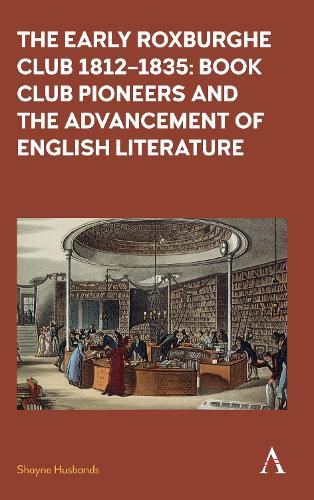Readings Newsletter
Become a Readings Member to make your shopping experience even easier.
Sign in or sign up for free!
You’re not far away from qualifying for FREE standard shipping within Australia
You’ve qualified for FREE standard shipping within Australia
The cart is loading…






A new narrative of the formative years of the Roxburghe Club and early nineteenth-century antiquarian culture and its relationship to the emergent popularity and status of English vernacular literature.
The Roxburghe Club, founded in 1812, has an unbroken publishing history from 1814 to the present day. The Early Roxburghe Club 1812-1835 offers a new narrative for the formative years of the Roxburghe Club, for the ‘bibliomania’ of the Romantic period and for early nineteenth-century antiquarian culture and its relationship to the emergent popularity and status of English vernacular literature. By examining in detail the make-up and membership of the club, including its social and political affinities, this revised history of the first two decades of its existence offers both an alternative view of the early club and its significant contribution to the move between antiquarian and scholarly areas of influence in the study of English literature.
$9.00 standard shipping within Australia
FREE standard shipping within Australia for orders over $100.00
Express & International shipping calculated at checkout
A new narrative of the formative years of the Roxburghe Club and early nineteenth-century antiquarian culture and its relationship to the emergent popularity and status of English vernacular literature.
The Roxburghe Club, founded in 1812, has an unbroken publishing history from 1814 to the present day. The Early Roxburghe Club 1812-1835 offers a new narrative for the formative years of the Roxburghe Club, for the ‘bibliomania’ of the Romantic period and for early nineteenth-century antiquarian culture and its relationship to the emergent popularity and status of English vernacular literature. By examining in detail the make-up and membership of the club, including its social and political affinities, this revised history of the first two decades of its existence offers both an alternative view of the early club and its significant contribution to the move between antiquarian and scholarly areas of influence in the study of English literature.